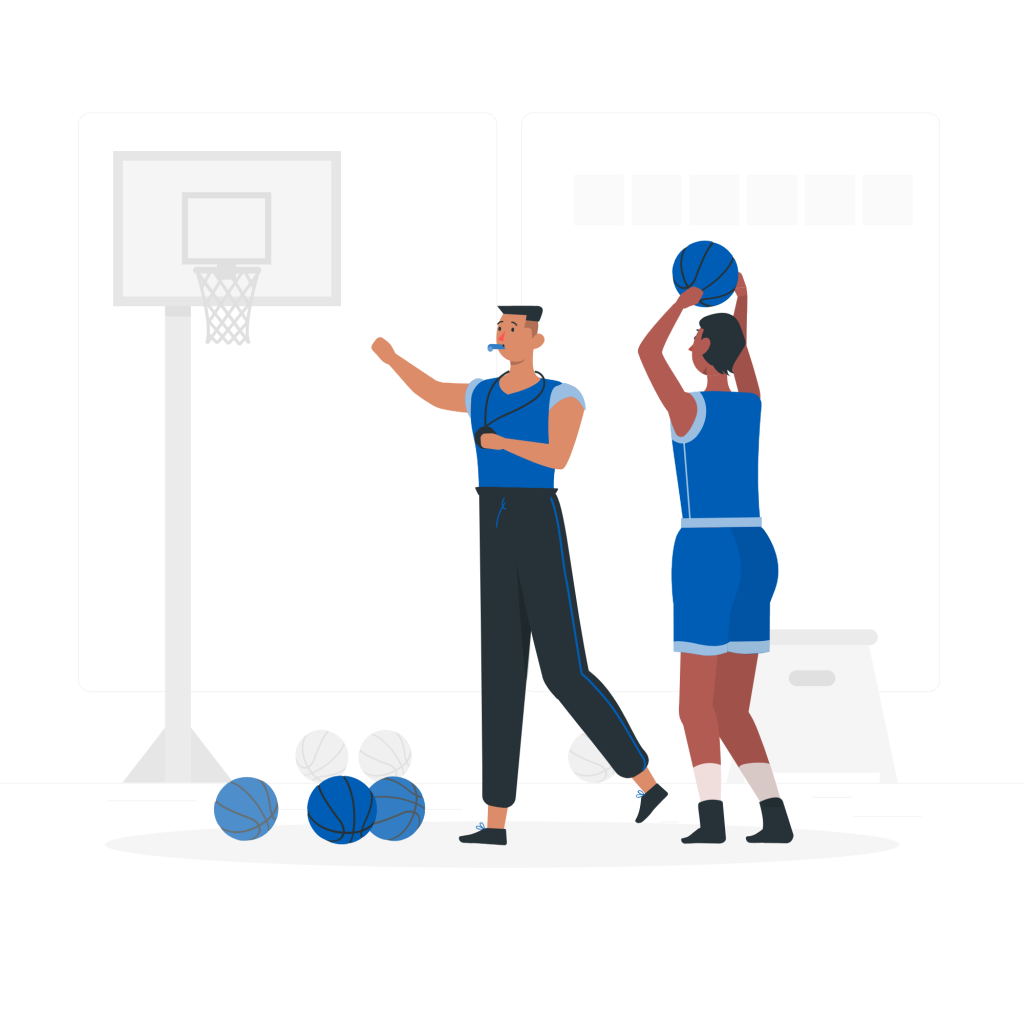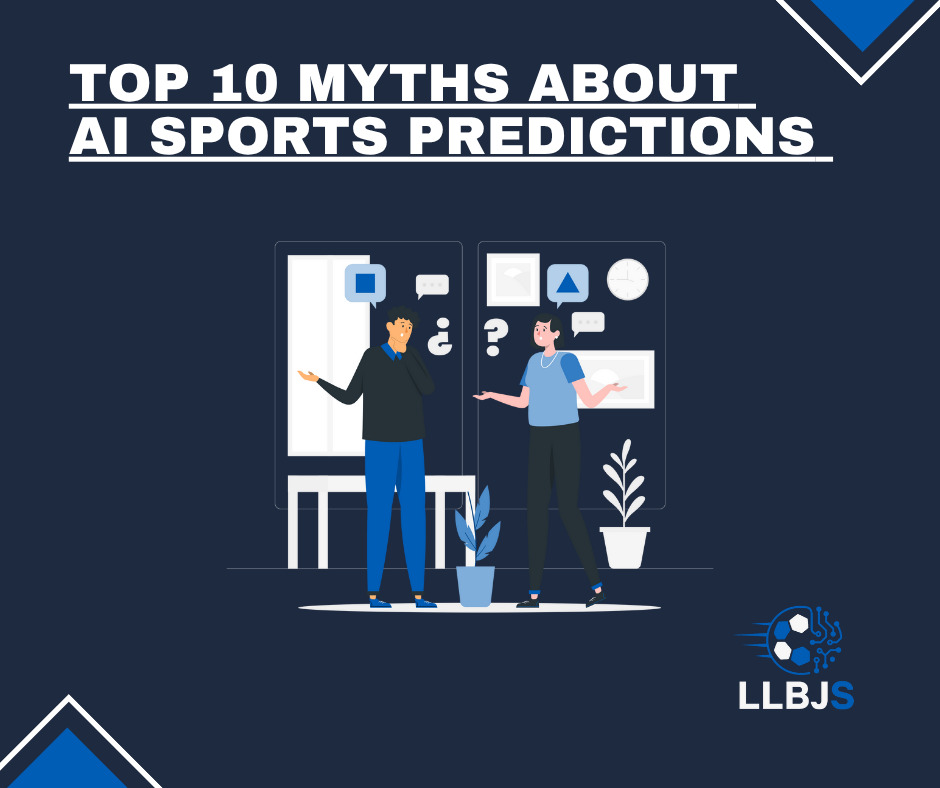As AI (Artificial Intelligence) becomes increasingly common in sports betting predictions, more players are starting to rely on it when placing bets. However, there are plenty of myths surrounding how AI works in this field. Today, I’m going to break down the top 10 myths—because the fewer mistakes you make, the better you can use AI predictions to your advantage when betting on sports games.
Myth #1: AI predictions are 100% accurate

Many players mistakenly believe that predictions made by AI are absolutely correct. In reality, AI only analyzes historical data—it cannot guarantee future outcomes. What AI gives you is the probability of what is likely to happen. If you know how to use that probability well, you have a chance to beat the odds set by the bookmakers and make a profit from sports betting.
Myth #2: AI will completely replace human analysts
Some believe that AI will replace professional analysts entirely. The truth is, that’s not the case—at least not yet. A good AI sports prediction platform still depends on experienced bettors and analysts like us to bridge the gap to real-world application.
I’ve come across numerous academic studies—often from top international universities in their statistics departments—where researchers attempt to build the best possible sports prediction models using various algorithms. But more often than not, their conclusions show that they still lose to the house by 1–2%.

That’s totally normal. Calculating probabilities in sports betting isn’t just about data—it’s also about information. Bookmakers are constantly receiving new info based on how sharp bettors are placing their wagers. In simple terms, if a large amount of money suddenly pours into a less popular bet, it could mean bettors know something that the bookmaker doesn’t.
Maybe a team trainer knows a player just pulled a hamstring. Maybe a stripper wore a player out last night and someone bet based on that tip. Or maybe it’s someone’s girlfriend’s best friend’s brother’s buddy who leaked an inside scoop.
These types of insider info can’t be factored into AI calculations instantly. But seasoned professionals like us can read the betting line movements and interpret the hidden signals.
Myth #3: Free AI predictions are low quality
When I was young, I used to think the more expensive a betting tip was, the better it must be. Later, I realized that’s not really the case. A tipster with a 55% win rate isn’t that far off from someone with 60%—what matters more is how you manage your betting units.
It’s the same with AI. Paid AI tools aren’t always better than free ones. And free AI predictions don’t necessarily mean poor quality. At Yuuwin, for example, we need traffic—so we’re happy to give away tools that are actually paid products elsewhere. Many free AI sports prediction tools are actually quite accurate. The key is knowing how to filter and verify them.
Myth #4: AI only works for certain sports
Some players believe AI is only effective for popular sports like football or basketball. But in fact, as long as there’s enough data, AI can work on any sport. The real problem is when people assume AI is all-knowing and use it for sports they know nothing about.

Take me, for example—I know nothing about cricket. Even if I had the data, I wouldn’t ask AI to help me predict cricket outcomes, because I’d have no way of judging the results. I wouldn’t know how to use them properly.
As I’ve stressed in past articles, the best way to use AI predictions is to combine them with your own analysis and intuition.
Myth #5: The more complex the AI model, the more accurate it is
Many believe the more advanced or complex the AI model, the better the prediction. But in truth, the quality of the data and whether the model is suitable for the problem matter more. Sometimes, simple models are more effective. Overly complex models are prone to overfitting, which means they perform well on old data but fail in real-life scenarios.
Myth #6: Full automation with AI is better
Automation can save you time, but relying on fully automated AI betting systems can be dangerous. You might miss real-time changes—like injuries or sudden line movements. And if there’s an error in your data and you don’t have proper risk management in place, full automation could lead to disaster.

Myth #7: Using AI will make you rich quickly
A lot of people assume AI will bring quick profits. That’s a dangerous belief—and I predict that more scammers will start using AI as a buzzword to lure people in.
The real role of AI in sports predictions isn’t to give you the exact answer, but to provide valuable reference points. And remember—the bookmaker’s AI is definitely not worse than yours. They always have more resources than you do.

Myth #8: AI isn’t affected by emotion
Technically, AI doesn’t have emotions. But the results it produces can still trigger emotional reactions in bettors—especially after a losing streak. You might start chasing losses or placing reckless bets to make up for them.
Even when using AI, solid bankroll management and unit control remain the key to long-term success.
Myth #9: AI can’t predict live game events, so it’s unreliable
The last two myths are actually more about what I hope AI can do better in the future. First, it’s true that AI can’t predict if a player will suddenly get injured or receive a red card. But some developers have already started including the probability of uncertainty in their models.
In advanced AI bots, we’re seeing elements like odds movement simulations included. This ability to “prepare for uncertainty” actually makes AI more stable than human judgment. The important thing is having someone who knows which uncertainties matter, and incorporating them into the model.
Myth #10: AI can’t understand emotions or mind games in a match
This one is partly true. AI can’t tell if a superstar player is in a bad mood or not feeling it today. And when unexpected events happen, AI might not react properly due to lack of real-time data.
But modern AI models are already incorporating emotional indicators and crowd psychology. For instance, social media sentiment analysis, team reactions to coaching changes, or fan expectation pressure—these are all being added into AI sports prediction models using text and emotion analytics.In other words, even though AI has no emotions, it can still quantify collective emotions and include them in its decision-making. It just takes time.



